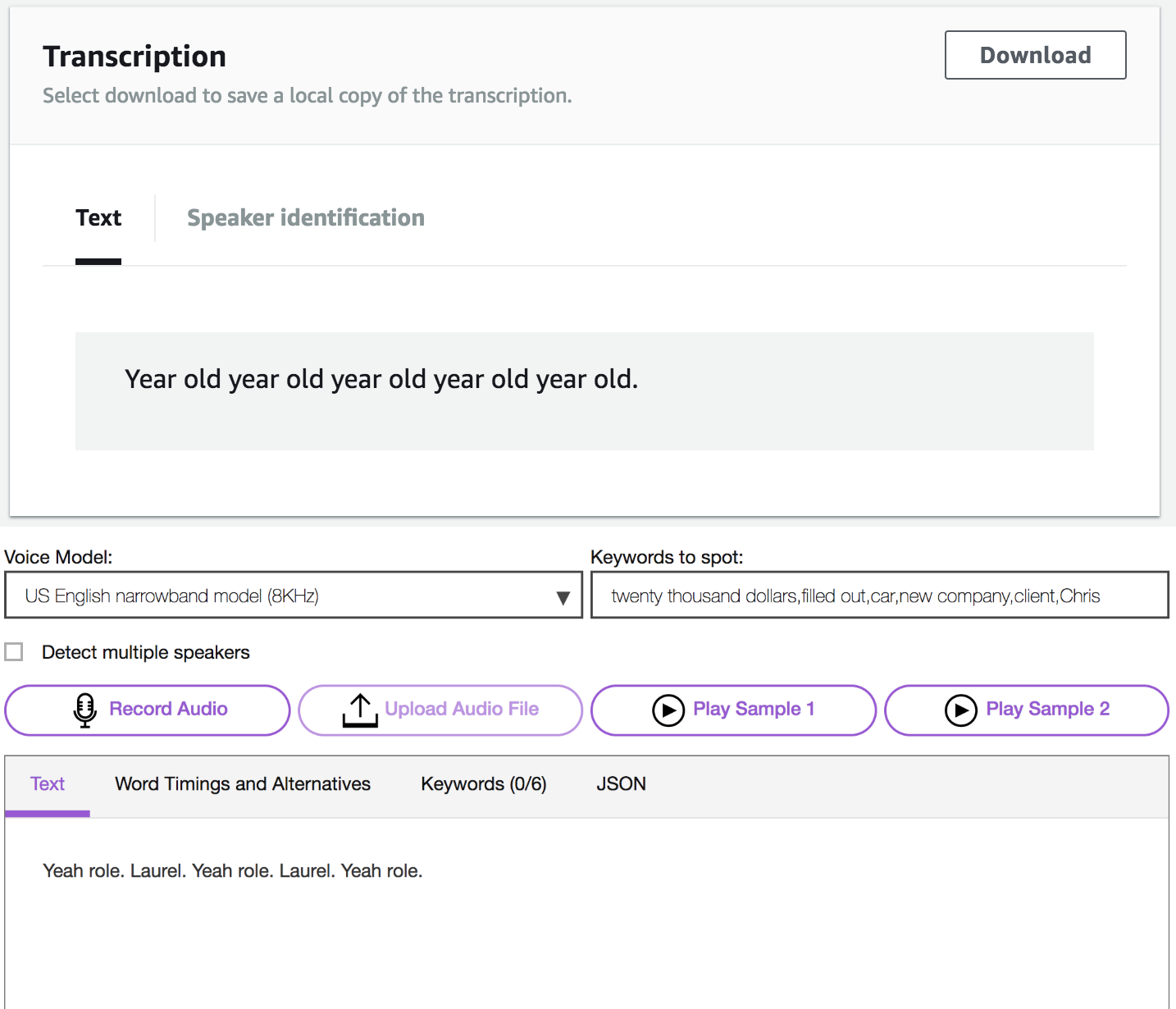Music
Trailers
DailyVideos
India
Pakistan
Afghanistan
Bangladesh
Srilanka
Nepal
Thailand
StockMarket
Business
Technology
Startup
Trending Videos
Coupons
Football
Search
Download App in Playstore
Download App
Best Collections
Technology
TESS, the satellite launched by NASA last month that will search thousands of stars for Earth-like exoplanets, has just sent back its first test image. Itjust a quick one, not &science-quality,& but it does give you an idea of the scale of the mission: the area TESS will eventually document is 400 times the area covered by this shot.
What you see above is the star field around the constellation Centaurus; this 2-second exposure captured more than 200,000 stars. Thatjust in one image from one of the four cameras on board; the Transiting Exoplanet Survey Satellite will employ all four during its mission, watching individual regions of space for 27 days straight over the course of two orbits.
Herea crop from the center:

Repeated high-resolution imagery of these star fields will let the team on the ground watch for any that dim briefly, indicating that a planet may be passing in between the star and our solar system. This will let it watch far, far more stars than the otherwise similar Kepler mission, which even by looking at only dim stars with a relatively narrow field of view, found evidence of thousands of exoplanets for scientists to pore over.
TESS just yesterday received a gravity assist from the moon, putting it near its final orbit. A last engine burn on May 30 will complete that maneuver and the satellite will enter into the highly eccentric, as yet untried orbit designed by its creators.
Once that orbit is attained and all systems are go, new imagery will come in about every two weeks when TESS is at its closest point to Earth. &First light,& or the first actual fully calibrated, usable image from the satellite, is expected some time in June.
- Details
- Category: Technology
Read more: NASA’s newest planet-hunting satellite takes a stellar first test image
Write comment (94 Comments)Google Duplex, which calls businesses on your behalf and imitates a real human, ums and ahs included, has sparked a bit of controversy among privacy advocates. Doesn&t Google recording a personvoice and sending it to a data center for analysis violate two-party consent law, which requires everyone in a conversation to agree to being recorded The answer isn&t immediately clear, and Googlesilence isn&t helping.
Lettake Californialaw as the example, since thatthe state where Google is based and where it used the system. Penal Code section 632 forbids recording any &confidential communication& (defined more or less as any non-public conversation) without the consent of all parties. (The Reporters Committee for the Freedom of the Press has a good state-by-state guide to these laws.)
Google has provided very little in the way of details about how Duplex actually works, so attempting to answer this question involves a certain amount of informed speculation.
To begin with I&m going to consider all phone calls as &confidential& for the purposes of the law. What constitutes a reasonable expectation of privacy is far from settled, and some will have it that you there isn&t such an expectation when making an appointment with a salon. But what about a doctoroffice, or if you need to give personal details over the phone Though some edge cases may qualify as public, itsimpler and safer (for us and for Google) to treat all phone conversations as confidential.
As a second assumption, it seems clear that, like most Google services, Duplexwork takes place in a data center somewhere, not locally on your device. So fundamentally there is a requirement in the system that the other partyaudio will be recorded and sent in some form to that data center for processing, at which point a response is formulated and spoken.
On its face it sounds bad for Google. Thereno way the system is getting consent from whomever picks up the phone. That would spoil the whole interaction — &This call is being conducted by a Google system using speech recognition and synthesis; your voice will be analyzed at Google data centers. Press 1 or say ‘I consent& to consent.& I would have hung up after about two words. The whole idea is to mask the fact that itan AI system at all, so getting consent that way won&t work.
But therewiggle room as far as the consent requirement in how the audio is recorded, transmitted and stored. After all, there are systems out there that may have to temporarily store a recording of a personvoice without their consent — think of a VoIP call that caches audio for a fraction of a second in case of packet loss. Thereeven a specific cutout in the law for hearing aids, which if you think about it do in fact do &record& private conversations. Temporary copies produced as part of a legal, beneficial service aren&t the target of this law.
This is partly because the law is about preventing eavesdropping and wiretapping, not preventing any recorded representation of conversation whatsoever that isn&t explicitly authorized. Legislative intent is important.
&Therea little legal uncertainty there, in the sense of what degree of permanence is required to constitute eavesdropping,& said Mason Kortz, of HarvardBerkman Klein Center for Internet - Society. &The big question is what is being sent to the data center and how is it being retained. If itretained in the condition that the original conversation is understandable, thata violation.&
For instance, Google could conceivably keep a recording of the call, perhaps for AI training purposes, perhaps for quality assurance, perhaps for users& own records (in case of time slot dispute at the salon, for example). They do retain other data along these lines.
But it would be foolish. Google has an army of lawyers and consent would have been one of the first things they tackled in the deployment of Duplex. For the onstage demos it would be simple enough to collect proactive consent from the businesses they were going to contact. But for actual use by consumers the system needs to engineered with the law in mind.
What would a functioning but legal Duplex look like The conversation would likely have to be deconstructed and permanently discarded immediately after intake, the way audio is cached in a device like a hearing aid or a service like digital voice transmission.
A closer example of this is Amazon, which might have found itself in violation of COPPA, a law protecting childrendata, whenever a kid asked an Echo to play a Raffi song or do long division. The FTC decided that as long as Amazon and companies in that position immediately turn the data into text and then delete it afterwards, no harm and, therefore, no violation. Thatnot an exact analogue to Googlesystem, but it is nonetheless instructive.
&It may be possible with careful design to extract the features you need without keeping the original, in a way where itmathematically impossible to recreate the recording,& Kortz said.
If that process is verifiable and thereno possibility of eavesdropping — no chance any Google employee, law enforcement officer or hacker could get into the system and intercept or collect that data — then potentially Duplex could be deemed benign, transitory recording in the eye of the law.
That assumes a lot, though. Frustratingly, Google could clear this up with a sentence or two. Itsuspicious that the company didn&t address this obvious question with even a single phrase, like Sundar Pichai adding during the presentation that &yes, we are compliant with recording consent laws.& Instead of people wondering if, they&d be wondering how. And of course we&d all still be wondering why.
We&ve reached out to Google multiple times on various aspects of this story, but for a company with such talkative products, they sure clammed up fast.
- Details
- Category: Technology
Read more: Does Google’s Duplex violate two-party consent laws
Write comment (100 Comments)If you haven&t taken part in the yanny/laurel controversy over the last couple of days, allow me to sincerely congratulate you. But your time is up. The viral speech synth clip has met the AI hype train and the result is, like everything in this mortal world, disappointing.
Sonix, a company that produces AI-based speech recognition software, ran the ambiguous sound clip through Google, Amazon and Watsontranscription tools, and of course its own.
Google and Sonix managed to get it on the first try — it&laurel,& by the way. Not yanny. Laurel.
But Amazon stumbled, repeatedly producing &year old& as its best guess for what the robotic voice was saying. IBMWatson, amazingly, got it only half the time, alternating between hearing &yeah role& and &laurel.& So in a way, itthe most human of them all.

Top: Amazon; bottom: IBM.
Sonix CEO Jamie Sutherland told me in an email that he can&t really comment on the mixed success of the other models, not having access to them.
&As you can imagine the human voice is complex and there are so many variations of volume, cadence, accent, and frequency,& he wrote. &The reality is that different companies may be optimizing for different use cases, so the results may vary. It is challenging for a speech recognition model to accommodate for everything.&
My guess as an ignorant onlooker is it may have something to do with the frequencies the models have been trained to prioritize. Sounds reasonable enough!
Itreally an absurd endeavor to appeal to a system based on our own hearing and cognition to make an authoritative judgement in a matter on which our hearing and cognition are demonstrably lacking. But itstill fun.
- Details
- Category: Technology
Read more: AI will save us from yanny/laurel, right Wrong
Write comment (95 Comments)According to new reporting from The Washington Post, President Trump personally pushed United States Postal Service head Megan Brennan to jack up shipping prices on Amazon and other firms.
The story comes from unnamed sources, who suggest that, thus far, the postmaster general has held out against pressure from the president. If enacted, the new pricing structure would likely cost the online retailer and others billions.
Amazon has been in Trumpcrosshairs from some time, of course. In late March, he took to Twitter to personally call out a &scam& he believed was costing the USPS &billions,& writing, &If the P.O. ‘increased its parcel rates, Amazonshipping costs would rise by $2.6 Billion.& This Post Office scam must stop. Amazon must pay real costs (and taxes) now!&
Brennan has reportedly pushed back on the notion that deals with companies like Amazon have been a bad deal for the postal service, offering evidence of the upsides of such partnerships in meetings with the president. She has also noted that such multiyear contracts wouldn&t be easy to break.
But Trumpcriticism of Amazon clearly has a personal element. Herea nice compendium of the many times hegone after the company and its owner Jeff Bezos on Twitter — at least through late-March. The criticism really started to hit its stride around 2015. Bezos, of course, also own The Washington Post, a paper Trump has regularly called out for reporting &fake news.&
Further clouding all of this is the fact that the USPS hasn&t released the specifics of its pricing deals with Amazon, for fear of given competing delivery services &an unfair advantage.& It has, however, insisted that itmade money on its deals with Amazon, in spite of the fact that the service reported a $2.7 billion loss in 2017.
- Details
- Category: Technology
Read more: Trump reportedly pushed USPS to double Amazon’s shipping rates
Write comment (90 Comments)The complexity and cost of packing an array of sensors and power inside a small amount of space has opened the door to a wider and wider variety of use cases for internet-connected devices beyond just smart thermostats or cameras — and also exposed a hole for getting those ideas into an actual piece of hardware.
So there are some startups that are looking to address this hole by providing developers a path to creating the customized chipsets they need to power those devices. zGlue is one of those, led by former Samsung engineering director Ming Zhang. The companychiplets are built around the kind of system-on-a-chip approach that you&ll see in most modern devices, where everything is in a single unit that reduces some of the complexity of moving processes around a larger piece of hardware — shrinking the space constraints and allowing all these actions to happen on a device, such as a smartphone. As more and more IoT devices come online, they may all have varying form factor demands, which means companies — like zGlue and others — are emerging to address those needs.
&From the developer point of view, think of us as a system that is not different from any thing else on the market, user-interface-wise,& Zhang said. &It is just smaller in size, faster in time to market, and flexible — customizable by individuals rather than just by Apple and Qualcomms. [We&re] democratizing chip innovation so it is no longer [a] privilege of Fortune 500 companies.&
The companyfirst product is called the zOrigin, a &chip-stacking& product that aims to allow developers to embed the sensors and processes necessary for their devices. Stemming from an ARM 32-bit core processor (meaning it can handle more complex and precise calculations), the first launch costs $149 for the wearable and development board and can include pieces like a Bluetooth radio, accelerometers, and other necessary features.
zGluechipsets have embedded memory, which is an increasingly common approach to try to reduce the number of trips going from the actual processing power to where the information is stored. Those trips cost power, speed, and can restrict the scope of use cases for internet-connected devices. Zhang said the chiplets are packaged closer together — literally reducing the space that information has to cross — in order to speed it up, though that of course carries consequences when it comes to heat constraints these processors can have.
&Thatthe price to pay for the continuation of Moorelaw, as it has in the past 40 years,& Zhang said. &Heat dissipation in our system is not going to be any worse than a conventional system. In fact, with the silicon substrate in place, iteasier to conduct heat compared to a conventional package or board substrate.&
As a kind of templated approach, zGlue is geared toward helping developers produce a custom setup that the can implement into devices that may require a wide set of sensors. The company says it looks to help developers go from a design to a prototype in a few weeks, and then reduce the turnaround time from a prototype to production in &weeks or months,& depending on the complexity and volume.
While this is one example of trying to get a prototype chip out into the wild, there are a few others as well. Si-Five, for example, offers developers a way to prototype custom silicon for their specific niches based on the hardware and IP the startup has. The goal there is to offer both a prototype flow and the ability to graduate into a production flow, allowing developers and companies to get products out the door that require custom silicon. Si-Five hardware is based on the RISC-V architecture, an open-source instruction set for silicon, and the company most recently raised $50.4 million.
Zhang, too, said RISC-V offers some potential, especially in its own scope. &RISC-V is a great tool to build small, fast, and low power IoT applications,& he said. &The nature of open source makes it more available to more people. We welcome and embrace RISC-V to join the family of ‘MCU& chiplets supported by our technology.&
When it comes to inference — the machine learning processes that happen on the hardware to execute some kind of action, like image recognition, based on trained models — Zhang said the chipsets would support it, but he would not comment further. There is a blossoming ecosystem around custom silicon that looks to speed up inference on devices like cars or IoT devices, which is geared toward reducing the space and power constraints of those chips while also running those processes much more quickly. Companies like Mythic have raised significant venture funding in order to build that kind of hardware.
- Details
- Category: Technology
Thereconfusion about whether a meeting between Facebook founderMark Zuckerberg and the European Unionparliament — which is due to take place next Tuesday — will go ahead as planned or not.
The meeting wasconfirmed by the EU parliamentpresident this week, and is the latest stop on Zuckerbergcontrition tour, following the Cambridge Analytics data misuse story that blew up into a major public scandal in mid March.
However, the discussion with MEPs that Facebook agreed to was due to take place behind closed doors. A private format thatnot only ripe with irony but was also unpalatable to a large number of MEPs. It even drew criticism from some in the EUunelected executive body, the European Commission, which further angered parliamentarians.
Now, as the FTreports, MEPs appear to have forced the parliamentpresident,Antonio Tajani, to agree to live-streaming the event.
Guy Verhofstadt — the leader of the Alliance of Liberals and Democrats group of MEPs, who had said he would boycott the meeting if it took place in private — has also tweeted that a majority of the parliamentgroups have pushed for the event to be streamed online.
And a Green Group MEP, Sven Giegold, who posted an online petition calling for the meeting not to be held in secret — has also tweeted that there is now a majority among the groups wanting to change the format. At the time of writing, Giegoldpetition has garnered more than 25,000 signatures.
MEP Claude Moraes, chair of the EU parliament&sCivil Liberties, Justice and Home Affairs (LIBE) committee — and one of the handful of parliamentarians set to question Zuckerberg (assuming the meeting goes ahead as planned) — told TechCrunch this morning that there were efforts afoot among political group leaders to try to open up the format. Though any changes would clearly depend on Facebook agreeing to them.
After speaking to Moraes, we asked Facebook to confirm whether it&sopen to Zuckerbergmeeting being streamed online — say, via a Facebook Live. Seven hours later we&re still waiting for a response, including to a follow up email asking if it will accept the majority decision among MEPs for the hearing to be live-streamed.
The LIBE committee had been pushing for a fully open hearing with the Facebook founder — a format which would also have meant it being open to members of the public. But that was before a small majority of the parliamentpolitical groups accepted the council of presidents& (COP) decision on a closed meeting.
Although now that decision looks to have been rowed back, with a majority of the groups pushing the president to agree to the event being streamed — putting the ball back in Facebookcourt to accept the new format.
Of course democracy can be a messy process at times, something Zuckerberg surely has a pretty sharp appreciation of these days. And if the Facebook founder pulls out of meeting simply because a majority of MEPs have voted to do the equivalent of &Facebook Live& the hearing, well, ithard to see a way for the company to salvage any face at all.
Zuckerberg has agreed to be interviewed onstage at the VivaTech conference in Paris next Thursday, and is scheduled to have lunch with French president Emmanuel Macron the same week. So pivoting to a last minute snub of the EU parliament would be a pretty high stakes game for the company to play. (Though itcontinued to deny a U.K. parliamentary committee any face time with Zuckerberg for months now.)
The EU Facebook agenda
The substance of the meeting between Zuckerberg and the EU parliament — should it go ahead — will include discussion about Facebookimpact on election processes. That was the only substance detail flagged by Tajani in thestatementon Wednesday when he confirmed Zuckerberg had accepted the invitation to talk to representatives of the EU500 million citizens.
Moraes says he also intends to ask Zuckerberg wider questions — relating to how its business model impacts peopleprivacy.And his hope is this discussion could help unblock negotiations around an update to the EUrules around online tracking technologies and the privacy of digital communications.
&One of the key things is that [Zuckerberg] gets a particular flavor of the genuine concern — not just about what Facebook is doing, but potentially other tech companies — on the interference in elections. Because I think that is a genuine, big, sort of tech versus real life and politics concern,& he says, discussing the questions he wants to ask.
&And the fact is henot going to go before the House of Commons. Henot going to go before the Bundestag. And he needs to answer this question about Cambridge Analytica — in a little bit more depth, if possible, than we even saw in Congress. Because he needs to get straight from us the deepest concerns about that.
&And also this issue of processing for algorithmic targeting, and for political manipulation — some in depth questions on this.
&And we need to go more in depth and more carefully about what safeguards there are — and what heprepared to do beyond those safeguards.
&We&re aware of how poor US data protection law is. We know that GDPR is coming in but it doesn&t impact on the Facebook business model that much. It does a little bit but not sufficiently — I mean ePrivacy probably far more — so we need to get to a point where we understand what Facebook is willing to change about the way itbeen behaving up til now.
&And we have a real locus there — which is we have more Facebook users, and we have the clout as well because we have potential legislation, and we have regulation beyond that too. So I think for those reasons he needs to answer.&
&The other things that go beyond the obvious Cambridge Analytica questions and the impact on elections, are the consequences of the business model, data-driven advertising, and how thatgoing to work, and there we need to go much more in depth,& he continues.
&Facebook on the one hand, itcomplying with GDPR [the EUincoming General Data Protection Regulation] which is fine — but we need to think about what the further protections are. So for example, how justified we are with the ePrivacy Regulation, for example, and its elements, and I think thatquite important.
&I think he needs to talk to us about that. Because that legislation at the moment itseen as controversial, itblocked at the moment, but clearly would have more relevance to the problems that are currently being created.&
Negotiations between the EU parliament and the European Council to update the ePrivacy Directive — which governs the use of personal telecoms data and also regulates tracking cookies — and replace it with a regulation that harmonizes the rules with the incoming GDPR and expands the remit to include internet companies and cover both content and metadata of digital comms are effectively stalled for now, as EU Member States are still trying to reach agreement. The directive was last updated in 2009.
&When the Cambridge Analytica case happened, I was slightly concerned about people thinking GDPR is the panacea to this — itnot,& argues Moraes. &It only affects Facebookbusiness model a little bit. ePrivacy goes far more in depth — into data-driven advertising, personal comms and privacy.
&That tool was there because people were aware that this kind of thing can happen. But because of that the Privacy directive will be seen as controversial but I think people now need to look at it carefully and say look at the problems created in the Facebook situation — and not just Facebook — and then analyze whether ePrivacy has got merits. I think thatquite an important discussion to happen.&
While Moraes believes Facebook-Cambridge Analytica could help unblock the log jam around ePrivacy, as the scandal makes some of the risks clear and underlines whatat stake for politicians and democracies,he concedes there are still challenging barriers to getting the right legislation in place — given the fine-grained layers of complexity involved with imposing checks and balances on what are also poorly understood technologies outside their specific industry niches.
&This Facebook situation has happened when ePrivacy is more or less blocked because its proportionality is an issue. But the essence of it — which is all the problems that happened with the Facebook case, the Cambridge Analytica case, and data-driven advertising business model — that needs checks and balances… So we need to now just review the ePrivacy situation and I think itbetter that everyone opens this discussion up a bit.
&ePrivacy, future legislation on artificial intelligence, all of which is in our committee, it will challenge people because sometimes they just won&t want to look at it. And it speaks to parliamentarians without technical knowledge which is another issue in Western countries… But these are all wider issues about the understanding of these files which are going to come up.
&This is the discussion we need to have now.We need to get that discussion right. And I think Facebook and other big companies are aware that we are legislating in these areas — and we&re legislating for more than one countries and we have the economies of scale — we have the user base, which is bigger than the US… and we have the innovation base, and I think those companies are aware of that.&
Moraes also points out that U.S. lawmakers raised the difference between the EU and U.S. data protection regimes with Zuckerberg last month — arguing therea growing awareness that U.S. law in this area &desperately needs to be modernized.&
So he sees an opportunity for EU regulators to press on their counterparts over the pond.
&We have international agreements that just aren&t going to work in the future and they&re the basis of a lot of economic activity, so it is becoming critical… So the Facebook debate should, if itpushed in the correct direction, give us a better handle on ePrivacy, on modernizing data protection standards in the US in particular. And modernizing safeguards for consumers,& he argues.
&Our parliaments across Europe are still filled with people who don&t have tech backgrounds and knowledge but we need to ensure that we get out of this mindset and start understanding exactly what the implications here are of these cases and what the opportunities are.&
In the short term, discussions are also continuing for a full meeting between the LIBE committee and Facebook.
Though thatunlikely to be Zuckerberg himself. Moraes says the committee is &aiming for Sheryl Sandberg,& though he says other names have been suggested. No firm date has been conformed yet either — he&ll only say he &hopes it will take place as soon as possible.&
Threats are not on the agenda though. Moraes is unimpressed with the strategy the DCMS committee has pursued in trying (and so far failing) to get Zuckerberg to testify in front of the U.K. parliament, arguing threats of a summons were counterproductive. LIBE is clearly playing a longer game.
&Threatening him with a summons in UK law really was not the best approach. Because it would have been extremely important to have him in London. But I just don&t see why he would do that. And I&m sure therean element of him understanding that the European Union and parliament in particular is a better forum,& he suggests.
&We have more Facebook users than the US, we have the regulatory framework that is significant to Facebook — the UK is simply implementing GDPR and following Brexit it will have an adequacy agreement with the EU so I think therean understanding in Facebook where the regulation, the legislation and the audience is.&
&I think the quaint ways of the British House of Commons need to be thought through,& he adds. &Because I really don&t think that would have engendered much enthusiasm in [Zuckerberg] to come and really interact with the House of Commons which would have been a very positive thing. Particularly on the specifics of Cambridge Analytics, given that that company is in the UK. So that locus was quite important, but the approach… was not positive at all.&
- Details
- Category: Technology
Read more: EU parliament pushes for Zuckerberg hearing to be live-streamed
Write comment (93 Comments)Page 5354 of 5614

 5
5










